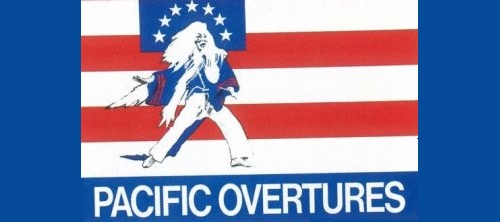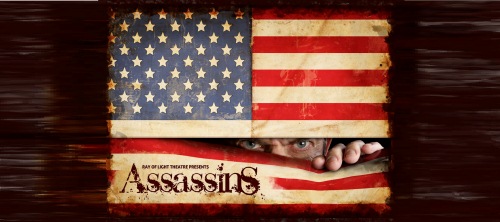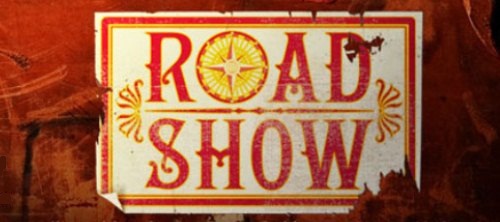Pas de biographie disponible.
Compositeur Musique additionelle Librettiste Parolier Metteur en scène Chorégraphe Producteur création Producteur version

Musical
Musique: David Shire • Paroles: Richard Jr Maltby • Livret: John Weidman • Production originale: 2 versions mentionnées
Dispo: Résumé Liste chansons
Genèse:
Résumé: The story is inspired by the early history of aviation, interweaving the lives of Orville and Wilbur Wright, Charles Lindbergh, Amelia Earhart and her publisher George Putnam together with the German "Glider King", Otto Lielthal, and the English Commander, Richard Byrd. The separate but sympathetic quests of these famous figures have been linked together to create a musical collage of dream chasing . Wilbur and Orville squabble and scratch their heads, plagued by doubts at Kitty Hawk and worry about returning home to be mocked as eccentric failures; Charles Lindbergh faces ghosts from his past as the long hours pass during his Atlantic crossing; and Amelia Earhart makes history with her aerial exploits, risking disaster in her attempt to fly round the world and endangering her relationship with her publisher, George Putnam who finances her first transatlantic flight just to sell books and later pursues her hand in marriage.
Création: 2007/7/25 - Menier Chocolate Factory (Londres) - représ.

Musical
Musique: Stephen Sondheim • Paroles: Stephen Sondheim • Livret: John Weidman • Production originale: 8 versions mentionnées
Dispo: Résumé Synopsis Génèse Isnpiration Liste chansons
Genèse: Pacific Overtures opened on Broadway at the Winter Garden Theatre on January 11, 1976, and closed after 193 performances on June 27, 1976. Directed by Harold Prince, the choreography was by Patricia Birch, scenic design by Boris Aronson, costume design by Florence Klotz, and lighting design by Tharon Musser. The original cast recording was released originally by RCA Records and later on CD. This production was nominated for 10 Tony Awards, and won Best Scenic Design (Boris Aronson) and Best Costume Design (Florence Klotz). An off-Broadway production ran at the Promenade Theatre from October 25, 1984 for 109 performances, transferring from an earlier production at the York Theatre Company. Directed by Fran Soeder with choreography by Janet Watson, the cast featured Ernest Abuba and Kevin Gray. The European premiere was directed by Howard Lloyd-Lewis (Library Theatre, Manchester) at Wythenshawe Forum in 1986 with choreography by Paul Kerryson who subsequently directed productions in 1993 and 2006 at Leicester Haymarket Theatre. A major production of the show was mounted in London by the English National Opera in 1987. The production was recorded in its entirety, preserving nearly the entire libretto as well as the score. A critically acclaimed 2001 Chicago Shakespeare Theater production, directed by Gary Griffin,[5] transferred to the West End Donmar Warehouse, where it ran from June 30, 2003 until September 6, 2003 and received the 2003 Olivier Award for Best Musical Production. In 2002 the New National Theatre of Tokyo presented two limited engagements of their production, which was performed in Japanese with English supertitles. The production ran at Avery Fisher Hall, Lincoln Center from July 9, 2002 through July 13, and then at the Eisenhower Theater, Kennedy Center, from September 3, 2002 through September 8. A Broadway revival ran at Studio 54 from December 2, 2004 to January 30, 2005, directed by Amon Miyamoto and starring B.D. Wong as the Narrator and several members of the original cast. A new Broadway recording, with new (reduced) orchestrations by orchestrator Jonathan Tunick was released by PS Classics, with additional material not included on the original cast album.[4] The production was nominated for four Tony Awards, including Best Revival of a Musical. The Original broadway production was filmed and broadcast on Japanese television in 1976.
Résumé: A musical with book by John Weidman, Pacific Overtures traces the history of Japan from the first contact with America (via Commodore Matthew Perry) through the modern age. The "development" of the country is represented by two characters, Kayama Yasaemon, a traditional samurai, and his friend Manjiro, a fisherman who had been shipwrecked in Boston, where he embraced Western ways. As Japan becomes more Westernized, Kayama embraces the new culture while Manjiro rejects it, rediscovering his roots. All this is acted out against a backdrop of the greater changes in Japan, as the Japanese and the world powers all try to capitalize on the opening up of Japan.
Création: 11/1/1976 - Winter Garden Theatre (Broadway) - représ.

Musical
Musique: Stephen Sondheim • Paroles: Stephen Sondheim • Livret: John Weidman • Production originale: 10 versions mentionnées
Dispo: Résumé Synopsis Commentaire Génèse Liste chansons
The anachronistic show explores the lives of the nine presidential assassins and would-be assassins, weaving together fictional scenes where the characters interact among each other with real-life events. The musical uses the premise of a murderous carnival game to produce a revue-style portrayal of men and women who attempted (successfully or otherwise) to assassinate Presidents of the United States. The music varies to reflect the popular music of the eras depicted.
Genèse: As a panelist at producer Stuart Ostrow's Musical Theater Lab, Sondheim read a script by playwright Charles Gilbert. Sondheim asked Gilbert for permission to use his idea. Gilbert consented and offered to write the book; but Sondheim declined, having already had collaborator John Weidman in mind. Weidman had written the book for Pacific Overtures and would work with Sondheim again on Road Show. Assassins opened Off-Broadway at Playwrights Horizons on December 18, 1990, and closed on February 16, 1991 after 73 performances. Directed by Jerry Zaks the cast included Victor Garber, Terrence Mann, Patrick Cassidy, Debra Monk, Greg Germann, and Annie Golden. According to the Los Angeles Times, "The show has been sold out since previews began, reflecting the strong appeal of Sondheim's work among the theater crowd." Frank Rich in his New York Times review wrote "Assassins will have to fire with sharper aim and fewer blanks if it is to shoot to kill." On October 29, 1992, Assassins opened in London at the Donmar Warehouse with direction by Sam Mendes and a cast that included Henry Goodman as Charles Guiteau and Louise Gold as Sara Jane Moore. The show ran for 76 performances, closing on January 9, 1993. Roundabout Theater Company's Broadway production was originally scheduled for 2001 but was postponed to April 22, 2004, because the content was sensitive in light of the events of September 11, 2001. After 101 performances at Studio 54, Assassins closed on July 18, 2004. Directed by Joe Mantello, with musical staging by Jonathan Butterell, Neil Patrick Harris starred in the roles of The Balladeer and Lee Harvey Oswald, with Marc Kudisch in an extended role as The Proprietor. Michael Cerveris played John Wilkes Booth, for which he received a Tony Award. The 2004 production was noted for a coup de théâtre: the Zapruder film of the death of John F. Kennedy projected onto Lee Harvey Oswald's t-shirt. Other professional productions have included a 2006 production at Crucible Theatre, Sheffield, a 2008 production which ran from January 23 to February 2, 2008, at the Landor Theatre, London, and a production at the Union Theatre in Southwark, London, in July 2010. The South African premiere opened in December 2008 as the inaugural production of the NewSpace Theatre in Cape Town. This production was directed by Fred Abrahamse with a South African cast including Marcel Meyer as John Wilkes Booth, Riaan Norval as Lee Harvey Oswald, David Dennis as Charles J. Guiteau and Anthea Thompson as Sara Jane Moore. The Los Angeles premiere opened in 1994 at the Los Angeles Theatre Center and included Patrick Cassidy (the original Balladeer) playing Booth, and Alan Safier as Guiteau. A 2010 production in Toronto by BirdLand Theatre and Talk is Free Theatre won the Dora Mavor Moore Award for Outstanding Production in the Musical Theatre Division.
Résumé: Les auteurs évoquent les hommes et les femmes qui ont assassiné (ou tenté d'assassiner) un président des États-Unis. La musique s'adapte aux styles musicaux des différentes époques évoquées. Les assassins sont: Leon Czolgosz (1873 – 1901) : assassin de William McKinley (1843 – 1901) / John Hinckley (né en 1955) : tentative d'assassinat sur Ronald Reagan (1911 – 2004) le 30 mars 1981 / Charles Guiteau (1841 – 1882) : assassin de James Garfield (1831 – 1881) / Giuseppe Zangara (1900 – 1933) : tentative d'assassinat sur Franklin D. Roosevelt (1882 – 1945) le 15 février 1933 / Samuel Byck (1930 – 1974) : tentative d'assassinat sur Richard Nixon (1913 – 1994) le 22 février 1974 / Lynette Fromme (née en 1948) : tentative d'assassinat sur Gerald Ford (1913 – 2006) le 5 septembre 1975. / Sara Jane Moore (née en 1930) : tentative d'assassinat sur Gerald Ford le 22 septembre 1975. / John Wilkes Booth (1838 – 1865) : assassin d'Abraham Lincoln (1809 – 1865)
Création: 18/12/1990 - Playwrights Horizons (Broadway (Off)) - représ.

Musical
Musique: David Shire • Paroles: Richard Jr Maltby • Livret: John Weidman • Production originale: 2 versions mentionnées
Dispo: Résumé Synopsis Génèse Liste chansons
Genèse: The pre-Broadway tryout started in Detroit in January 1996. The musical opened on Broadway at the Shubert Theatre on April 28, 1996, and closed on October 13, 1996, after 193 performances. Although it was nominated for five Tony Awards, (Best Actress, Supporting Actor, Book, Score, and Choreography), it was one of Broadway's costliest money-losers. The show had a US National tour, directed by Eric D. Schaeffer starring Jim Newman and Jacquelyn Piro Donovan, which began in February 1998 at the Paramount Theatre in Seattle. The musical was "restaged and largely rewritten for the road". Reviews were sharply divided on the Broadway production, but not on the 1998 US National tour, which was a hit after much rewriting from authors, John Weidman (book), Richard Maltby, Jr. (lyrics), and David Shire (music). Alvin Klein, in his New York Times review of a 2000 regional production of the musical, wrote, " 'Big' cannot be cavalierly dismissed as a failed musical that was no match for a blockbuster movie. It is satisfyingly good -- and it was shortchanged." The revised version is available through Music Theatre International, and continues to be mounted in amateur, school, and professional theatre productions around the US.
Résumé: A frustrated adolescent Josh Baskin wishes he were “big" and wakes up the next morning a 30 year-old man. He discovers there's much more to being an adult than he had bargained for, and learns that we must all grow up at our own pace, in our own time.
Création: 28/4/1996 - Shubert Theatre (Broadway) - représ.

Musical
Musique: Stephen Sondheim • Paroles: Stephen Sondheim • Livret: John Weidman • Production originale: 6 versions mentionnées
Dispo: Résumé Synopsis Commentaire Génèse Liste chansons
This musical has a long and complicated history. It began as a New York workshop in October 1999 under the title “Wise Guys” with Nathan Lane and Victor Garber, directed by Sam Mendes. A legal case involving producer Scott Rudin and Weidman and Sondheim held up further production. With major re-writing, the new version opened in Chicago in June 2003, directed by Harold Prince, and re-titled “Bounce”. This version received poor notices and closed after playing Washington in November 2003. A third version was created - this time running just 90 minutes without an interval - and, under its new name, “Road Show”, it opened off-Broadway on November 18th 2008 (previews from October 28th) and closed on December 28th. This third version was directed by John Doyle and won the 2009 Obie Award for Music & Lyrics, and the Drama Desk Award for Lyrics.
Genèse: The musical premiered at the New York Theatre Workshop from October through November 1999 under the title Wise Guys. It was directed by Sam Mendes and starred Nathan Lane and Victor Garber as brothers Addison Mizner and Wilson Mizner. A legal case involving Scott Rudin and Weidman and Sondheim held up further production. Substantially rewritten and retitled Bounce, the show opened on June 20, 2003 at the Goodman Theatre in Chicago. The production was directed by Harold Prince, with choreography by Michael Arnold, set design by Eugene Lee, costume design by Miguel Angel Huidor, and lighting design by Howell Binkley The cast starred Richard Kind (Addison Mizner), Howard McGillin (Wilson Mizner), Jane Powell (Mama Mizner), Herndon Lackey (Papa Mizner/Businessman/Englishman/Plantation Owner/Armstrong/Real Estate Owner), Gavin Creel (Hollis Bessemer), and Michele Pawk (Nellie). The musical then ran at the Kennedy Center in Washington, D.C. in October and November 2003 with the Chicago cast. It received mixed–to–negative reviews and was not produced in New York. A private reading of Bounce was held at the Public Theater on February 6, 2006. Playbill reported that Eric Schaeffer directed, with Richard Kind and Bernadette Peters among the cast. A new production of the musical, titled Road Show, rewritten without an intermission and without the leading female character of Nellie (who had been added for 2003 production), opened Off-Broadway at The Public Theatre's Newman Theater in previews on October 28, 2008, officially opening on November 18, and closing December 28, 2008. John Doyle was the director and designer, with Michael Cerveris and Alexander Gemignani playing brothers Wilson and Addison Mizner respectively, Alma Cuervo as Mama, Claybourne Elder as Hollis, and William Parry as Papa. This production won the 2009 Obie Award for Music and Lyrics. and the Drama Desk Award, Outstanding Lyrics (Sondheim). The title changes reflect the creators' attempts to hone the show's story and themes. "Ideally the title is connected to what we hope the show is about," Weidman says.[13] The musical opened at the Menier Chocolate Factory, London in previews on June 24, 2011, officially on July 6 and closed on September 18. John Doyle was the director and designer, with a cast featuring Michael Jibson, David Bedella and Jon Robyns.[14]
Résumé: Tells the true boom-and-bust story of the architect Addison Mizner and his fast-talking brother Wilson, two of the most colourful and outrageous fortune-seekers in American history. From panning for gold in Alaska to building the city of Boca Raton in Florida, both were driven by the need to succeed - at whatever cost. Unfortunately, this left them with a trail of debts, disastrous relationships (including their own as brothers) and unfulfilled dreams.
Création: 29/10/1999 - New York Theatre Workshop (Broadway (Off)) - représ.

.png)
.png)




